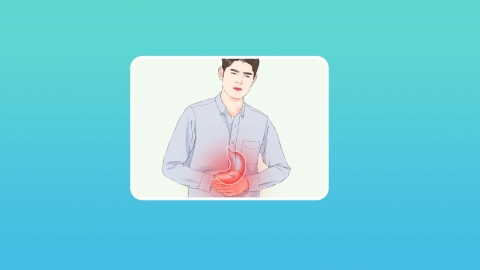What causes polyps to grow in the stomach?
Under normal circumstances, gastric polyps may be caused by factors such as aging, unhealthy dietary habits, Helicobacter pylori infection, atrophic gastritis, bile reflux gastritis, and others. Symptomatic management usually involves general treatment and medication. If physical discomfort occurs, prompt medical attention should be sought to avoid delaying treatment. Detailed analysis is as follows:

1. Age
With increasing age, the stomach mucosa's capacity for repair and regeneration may weaken, making it more susceptible to various stimuli that can lead to polyp formation. These usually do not present with obvious accompanying symptoms and are primarily detected and managed through regular physical examinations and gastroscopy.
2. Unhealthy Dietary Habits
Long-term consumption of highly irritating foods, such as strong tea, alcohol, spicy foods, or binge eating and irregular eating patterns, may damage the gastric mucosa and promote the formation of gastric polyps. These may be accompanied by symptoms such as stomach discomfort and indigestion. It is recommended to improve dietary habits in daily life, reduce intake of irritating foods, maintain regular meals, and chew food slowly.
3. Helicobacter pylori Infection
Helicobacter pylori is a common bacterium in the stomach that can cause inflammatory reactions in the gastric mucosa. Long-term inflammation may lead to abnormal proliferation of gastric mucosal epithelial cells, resulting in polyps. Symptoms may include stomach pain, indigestion, nausea, and vomiting. It is recommended to use medications such as omeprazole enteric-coated capsules, amoxicillin capsules, and clarithromycin dispersible tablets under medical guidance to eradicate Helicobacter pylori and reduce inflammation.
4. Atrophic Gastritis
Atrophic gastritis weakens the barrier function of the gastric mucosa, making it more susceptible to various stimuli. Prolonged inflammation and mucosal damage may lead to abnormal proliferation of gastric mucosal cells, forming gastric polyps. Symptoms may include upper abdominal discomfort, a feeling of fullness, belching, and acid reflux. It is recommended to use medications such as cimetidine tablets, trimebutine maleate tablets, and mosapride citrate capsules under medical guidance for treatment.
5. Bile Reflux Gastritis
Bile reflux gastritis causes damage to the gastric mucosa due to bile salts and other components in bile, triggering inflammatory reactions and gastric mucosal erosion. Long-term inflammation and mucosal damage may lead to abnormal proliferation of gastric mucosal cells and the formation of gastric polyps. Symptoms may include upper abdominal pain, bloating, nausea, and others. It is recommended to use medications such as lansoprazole enteric-coated tablets, ranitidine hydrochloride capsules, and omeprazole enteric-coated tablets under medical guidance for treatment.
In daily life, maintaining good dietary habits and lifestyle practices, along with regular gastroscopic examinations, can help detect and manage gastric diseases such as gastric polyps promptly.
References
[1] Ke Jie, Ji Chunyan, Ji Chengcheng, et al. Value of confocal laser micro-endoscopy in quantitative diagnosis of chronic atrophic gastritis[J]. Chinese Journal of Gastroenterology and Hepatology, 2025, 34(02): 240-243.
[2] Zhang Xun, Liao Wenfei, Peng Bo. Detection and typing analysis of Helicobacter pylori in 1866 cases of chronic gastritis in Wuhan area[J]. Journal of Public Health and Preventive Medicine, 2025, 36(02): 61-64.





